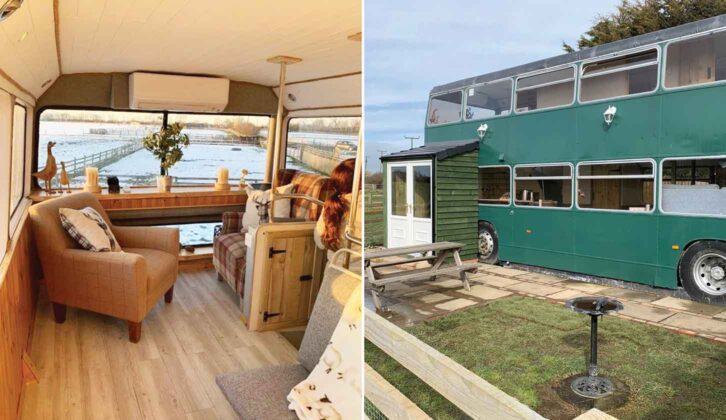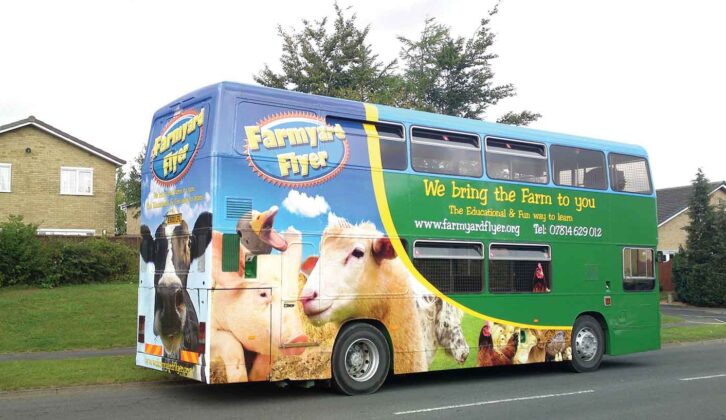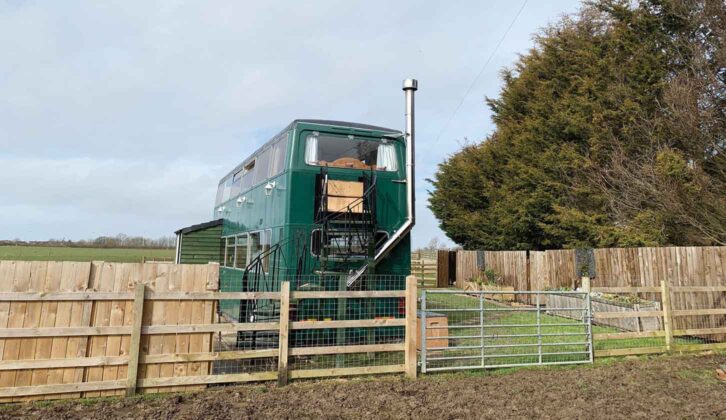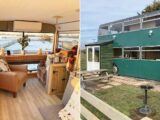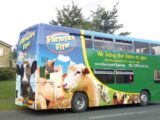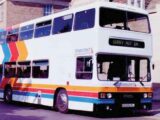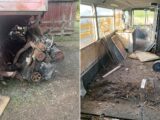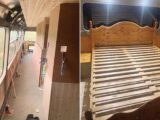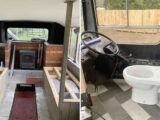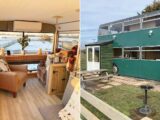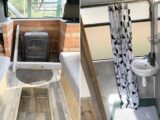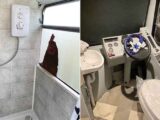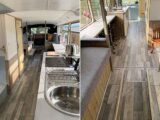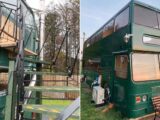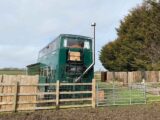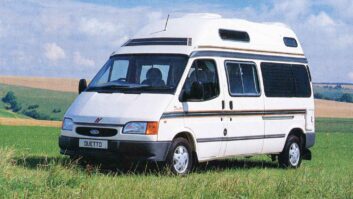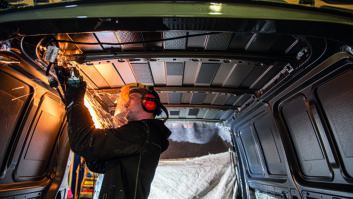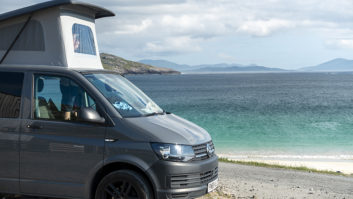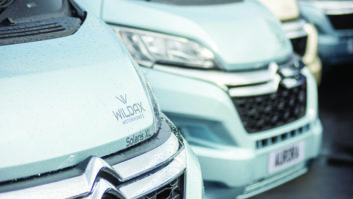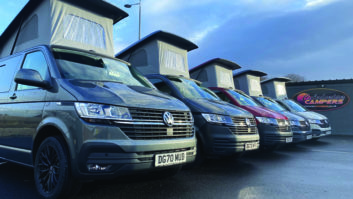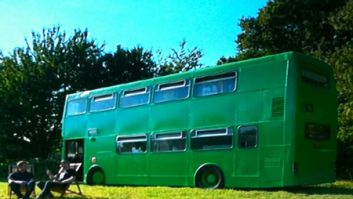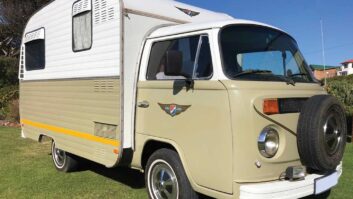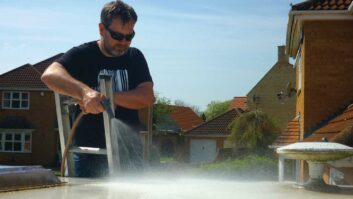In 2009, David and Gillian Rivers started work on converting a double-decker bus into the world’s first double-decker mobile farm.
Fast forward a few years and the Farmyard Flyer was to go through another transformation, as the couple faced the economic reality of a mobile business that had come to a permanent halt as a result of the pandemic.
Undeterred, they decided to use the time to take it off-road and instead converted the double decker bus into a holiday let, complete with luxurious double beds, shower facilities and a fully fitted kitchen.
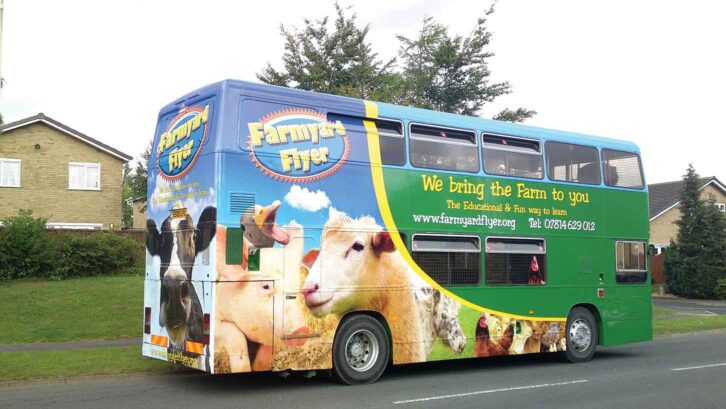
David explains how they came to create the mobile farm. “Gillian was a lecturer in agriculture at Durham University and had always wanted to farm, so when we got together, we decided to buy this small farm outside Darlington. Originally, we had acquired it with the intention of opening an educational centre. But the access off a dual carriageway was considered unsuitable for a school, so we had to come up with another plan.”
- Wondering who you could use to carry out a conversion? Then our guide to the best campervan converters is sure to help, as we share our standout picks.
Buying the double-decker bus to convert
What a plan that was. They decided to spend £3500 buying what turned out to be a relatively rare bus from a local transport firm – a Leyland Olympian with an Opare body and a Gardner engine. David later discovered that only three of these buses were ever built. They were commissioned to go to Hong Kong, but the order was cancelled and they were put into general use here in the UK.
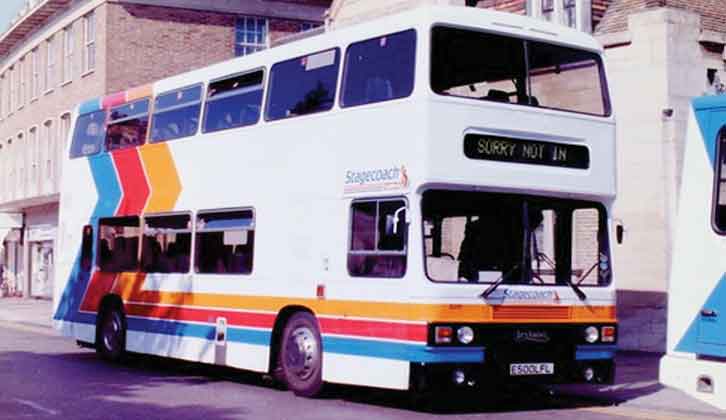
The E (1987) registration bus had a relatively low 52,000 miles on the clock, and the couple laid out just shy of £30,000 converting it into the world’s first mobile double-decker bus farm.
They spent the next few years visiting schools and events (in addition to their other jobs as factory shift manager and dog groomer), where they showed a variety of farm animals. Gillian had to obtain a Class 2 HGV qualification – the bus was carrying livestock, so it was classed as an HGV.
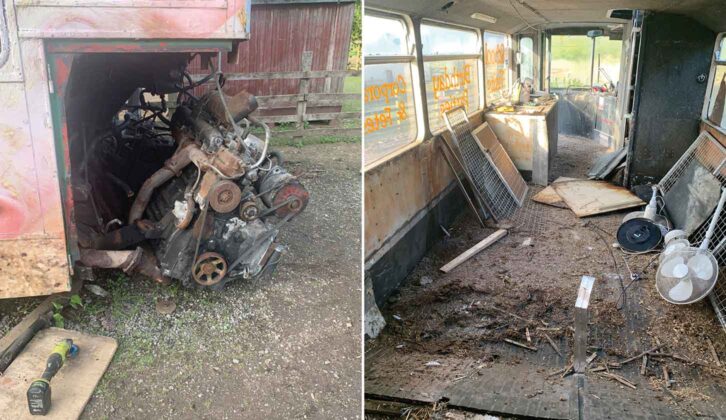
“We used to carry a pig or a small calf,” says David. “Sometimes we would take goats or sheep – we’d rotate the selection of animals.”
“We caged off a section upstairs in the area above the driver, where we would have turkeys. And children would be able to bottle feed the orphan lambs. We also had small runs for the rabbits and the chinchillas.”
The impact of the pandemic
The advent of Covid instantly put paid to the business, however, and for a while the converted double-decker bus sat derelict, only being used as a chicken shed. But then the idea to convert it into a unique holiday let began to take shape.
David stripped the bus and ripped out the engine (it’s now being used in an old wagon) before asking builder friend Stuart Hodgson to help with the conversion. Stuart had only recently undergone a kidney transplant, and was unable to return to normal work because of his weakened immune system and the risk of Covid. Working alone on the bus conversion gave him the opportunity to get back to work.
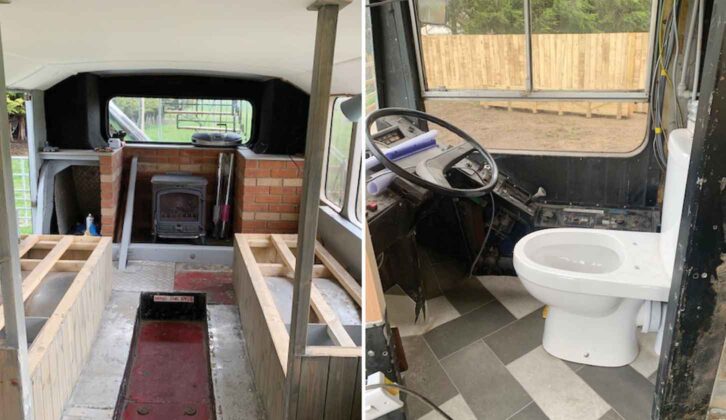
“He’d only had the kidney transplant five months before,” says David. “Yet he was buzzing with energy, but there was the risk of infection, so he had to be extra careful. If we needed to talk, we’d do so through the window, and explain what we wanted. Stuart’s one of those builders who can turn his hand to anything, so we came up with the ideas and he did most of the conversion. The finishing off was done by me and Gillian – she also fitted the doors and built the porch.”
As with the horsebox conversion we’ve previously seen, the result is very impressive. In place of the engine there is now a log burner, while the two bench seats have been extended with the addition of a smart breakfast bar, cleverly adorned with four tractor seat stools.
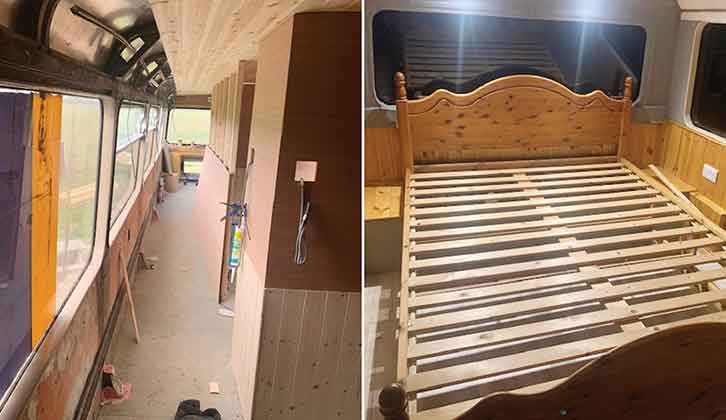
There’s now a fully fitted kitchen, providing a four-ring hob, a microwave convection oven, a fridge-freezer and a large sink and drainer.
There’s also a shower/wetroom and the pièce de résistance, the toilet, which is rather ingeniously fitted where the driver’s seat used to be – with both the steering wheel and the dashboard dials still intact. David’s intention is to make the air brake the flush for the toilet.
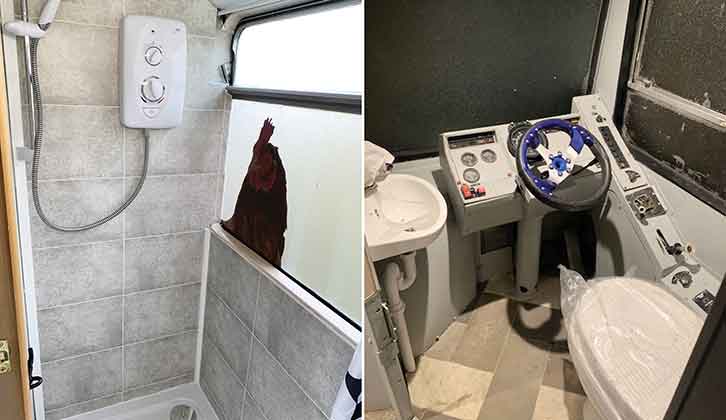
He says: “I had a bet with Gillian that the first Facebook picture we’d receive from visitors would be of somebody sitting on the toilet – and I was right!”
Upstairs above the driver’s seat/toilet is a chill-out area, providing a choice of comfortable seating, including one of the original bus seats. Further along is an opulent double queen bedroom and then another door, which leads to the master king bedroom.
The biggest challenges faced while converting the double-decker bus
One of the biggest challenges that they faced while converting the double-decker bus was freeing off the brakes. After some consideration, they eventually had to call in a company that specialises in bus breakdowns.
This firm used a large air compressor to undo the wheel nuts and then cut off the air brakes to free them.
Gillian towed the bus to its current location, on a specially prepared concrete plinth, where David bolted it onto H beams.
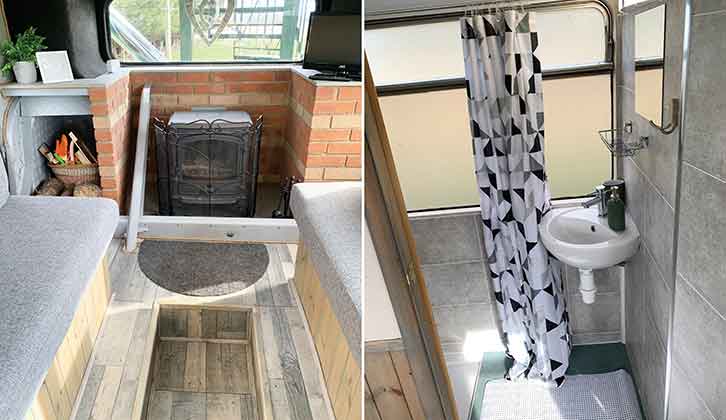
“The bus is not far from our barn, so we’ve been able to take an electric cable into a separate fuse box and then we have a fuse box in the bus – like a hook-up at a campsite. The water fills via a pipe from outside. I needed to keep the bus movable, and it is. We’d need a day to prepare it, but we can get it moving under tow,” he explains.
They also had to rubberise the roof to ensure there were no leaks. Sealing the windows was another challenge, but they eventually found a way to do so using a rubber component.
This saved them from the additional expense of having to remove all of the windows in the bus and then refit them with new rubbers.
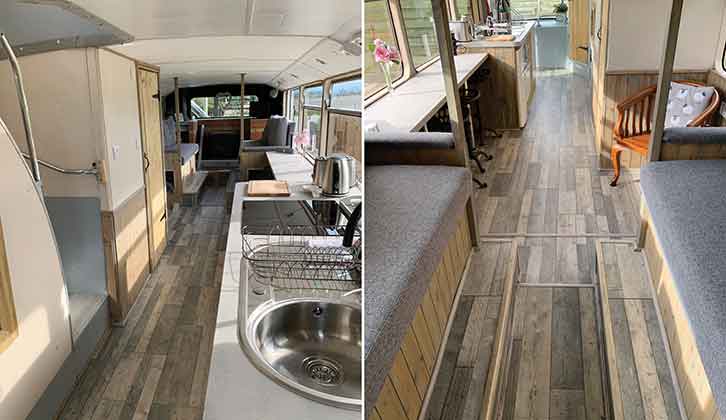
Outside, they have added a charming spiral staircase and a viewing platform, so guests can watch the deer and other animals around the farm, and there’s also a chill-out area with a chiminea.
David says: “Eventually I will add hot tubs outside, but I’m hoping to do this in a unique way – the best way I can describe them is as posh horse troughs powered by a log burner!”
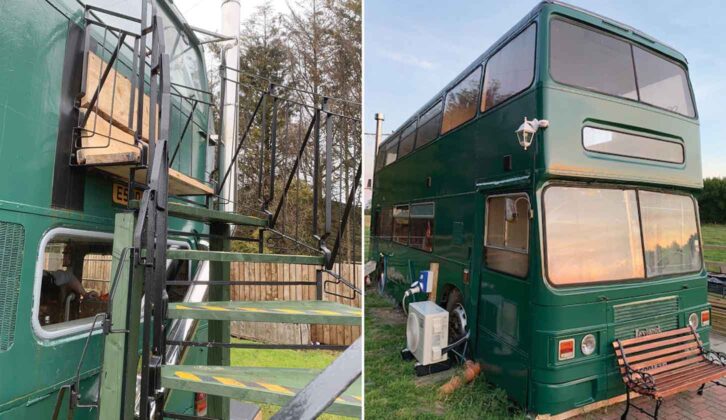
So is the project complete? After two years of hard work, during which they had to cope with the restrictions of the pandemic, and then sandwiching work between their other jobs, the answer is “Yes”. The bus is now available for hire at £150 per night for four adults, with a two-night minimum stay.
- If you’re after a ‘van for your next tour, take a look at our best camper van guide, where we share our pick of the standout models on the market in 2023.
If you enjoyed this, take a look at these:
- Andy McCandlish talks us through the process of converting a van.
- We find out how to go about choosing a base van.
- We take a look inside the $2.5m RV previously owned by Will Smith.
If you’ve enjoyed reading this article, why not get the latest news, reviews and features delivered direct to your door or inbox every month. Take advantage of our brilliant Practical Motorhome magazine SUBSCRIBERS’ OFFER and SIGN UP TO OUR NEWSLETTER for regular weekly updates on all things motorhome related.
